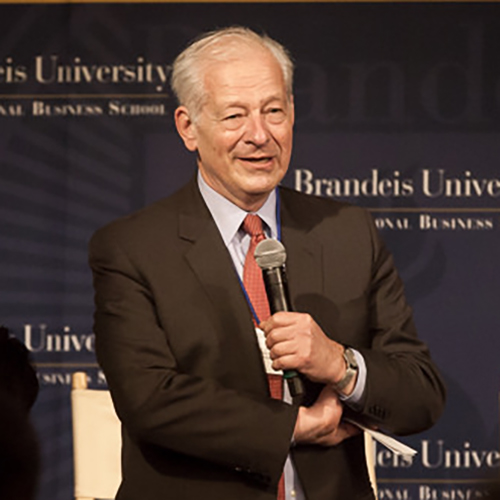
Prof. Sandra Cha’s research on diversity in the workplace is getting some much-deserved attention.
What’s the point of diversity at work if you’re just expected to blend in?
For many minority professionals, conventional wisdom at the office holds that the best strategy for advancement is to minimize your differences and adapt to the predominant culture. But new research from Brandeis International Business School Prof. Sandra Cha presents a compelling challenge to that logic.
In a study published in Organization Science, Cha and her coauthor interviewed 47 Asian American and African American journalists. They found four different ways cultural minorities — individuals from cultural identity groups that are historically underrepresented and lower status in the workplace, such as women and racial minorities — can leverage their minority identity and perspectives to advance their careers, add value to their work and find a place within their workplace.
“It was very eye-opening for us,” said Cha. “The people we interviewed drew on their minority identity as a resource. It helped them make progress toward important work-related goals, namely constructing a positive professional image, building relationships with other people and producing quality work. We came away really impressed by their resourcefulness, their courage in some cases, and their creativity.”
Cha and coauthor Laura Morgan Roberts from the University of Virginia recruited journalists working in various organizations. Their initial questions focused on how minorities navigate challenges at work, such as negative stereotyping and discrimination.
Cha said they expected to hear a lot about people feeling pressure to blend in and avoid drawing attention to their minority identity. The journalists did share many instances of feeling this pressure, but also described intriguing ways in which they drew on their minority identity in positive ways — approaches that Cha refers to as “identity mobilization tactics.”
“Hearing these stories led us to the surprise discovery that the minority identity represents more than just a challenge to be overcome at work,” she said. “It is also associated with positive resources that can help individuals communicate their strengths, connect with other people and produce insightful work.”
That conclusion is important for employees because it highlights the enormous potential benefits of “bringing their whole selves to work,” as Cha describes it. And there’s a significant upside for businesses too. When employees mobilize their minority identities, their positive image, strong relationships and innovative work can enhance their company's image, social capital and productivity.
For managers, that means ensuring that team members truly have the support they need to embrace their minority identities.
“Our study suggested that individuals are more likely to mobilize their minority identity when their managers provide an environment in which people feel comfortable, empowered and rewarded for contributing their identity-related strengths,” said Cha.
Cha’s research is getting attention. This year, she gave a presentation on her findings at a conference at Harvard Business School, wrote an article in Harvard Business Review discussing the practical applications of her research in the workplace, and was approached by a publisher about potentially writing a book based on her research.
Cha credited the supportive atmosphere at Brandeis University and the International Business School for enabling her to explore such a potentially fraught subject.
“It's captured in the university’s motto,” she said. “It's not just about the truth, it's about truth, even unto its innermost parts. It’s a willingness to dig deeper and question assumptions.”
Featured Stories
News Categories
@BrandeisBusiness Instagram
View this profile on InstagramBrandeis Intl. Business School (@brandeisbusiness) • Instagram photos and videos

December 23, 2019
MBA candidate Paul Schulman is a 2019 Reaching Out fellow
December 19, 2019
Why isn’t there more diversity in teaching?
December 17, 2019
Good genes, smart goals, passionate people
December 11, 2019
A message from the president